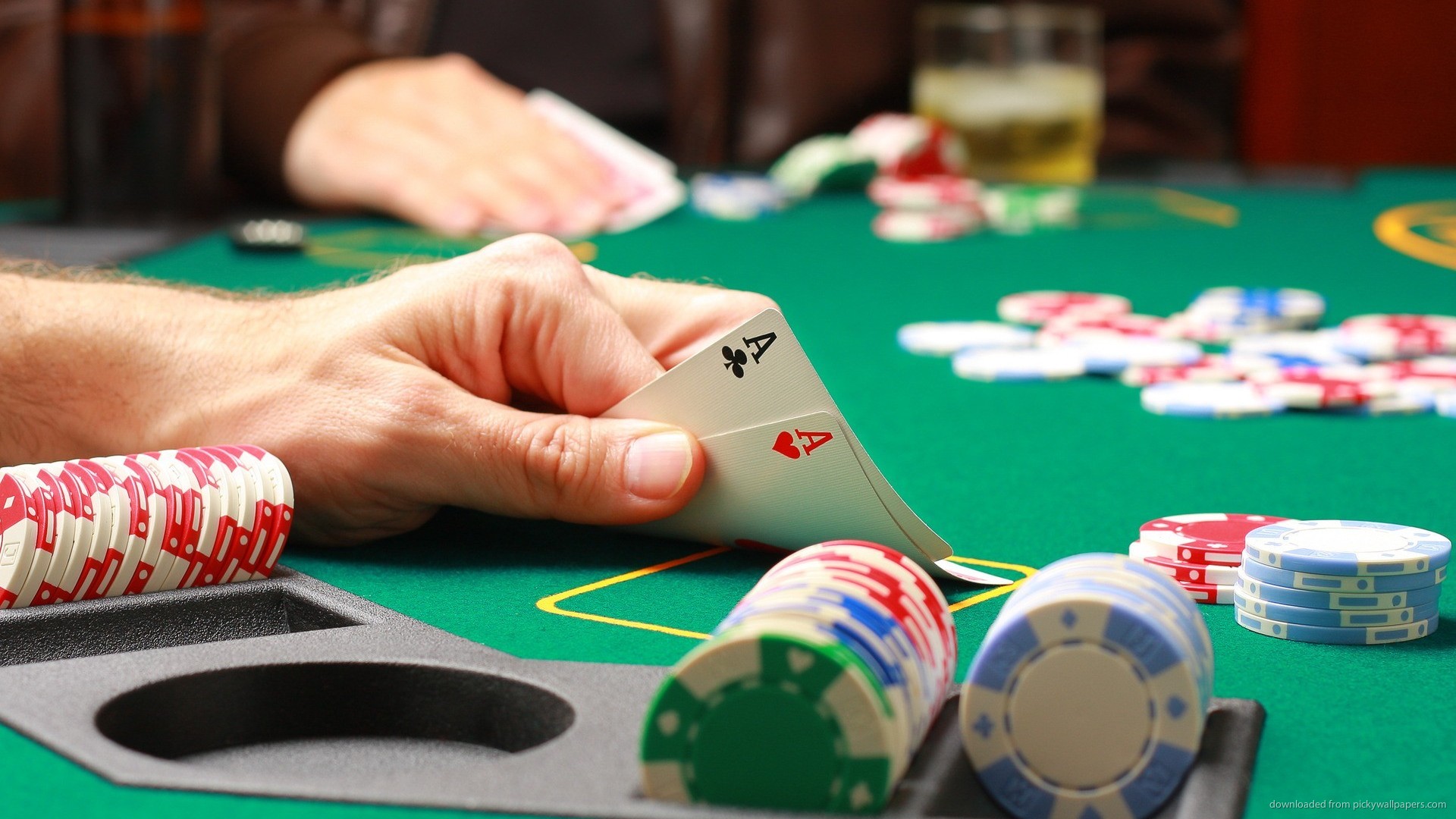A colt by Pioneerof the Nile was purchased by Shortleaf Stable for $600,000 during the second session of Fasig-Tipton’s New York-Bred Preferred Yearlings Sale.
Monthly Archives: August 2018

Kangwon Land sees Q2 profits fall 14%
Kangwon Land Inc. released its financial statement for the second quarter of the year last week and the numbers weren’t that great. The company indicated that the net profit for the quarter was just under $84.1 million, down 14% over the same period last year. Kangwon Land, about 93 miles from Seoul, is the only casino in South Korea that is open to local gamblers.
Sales revenue in Q2 dropped 9.2% to $299.7 million. For Q2 2017, it had picked up a little more than $330 million. The casino also stated that its operating income slid downward 15.1% to about $101.7 million.
Gaming sales were $275.47 million, a decline of 9.1%. All gaming segments at the casino saw drops, with the largest coming from its “Membership Club.” The club reported a 18.1% decline with $24.25 million brought in. Its mass gaming segment fell to $134.1 million, a drop of 9.4%. Non-gaming revenue also fell, down 9.5% to $24.24 million.
According to JP Morgan Securities analysts DS Kim and Sean Zhuang, “Kangwon reported an earnings miss (-5 percent versus consensus) with poor details, though it was not a complete surprise,” said brokerage JP Morgan Securities (Asia Pacific) Ltd. “On the bright(er) side, we think the trend is unlikely to get much worse from here. The poor results reflect regulatory headwinds, such as the revenue cap [policy], reduction in tables count and operating hours, tighter VIP membership criteria, and shortage of dealers (Kangwon had to lay off 200+ staff amid HR scandal).”

AGTech’s profits up in first half of the year
On the heels of several new lottery contracts in the country, China’s AGTech Holdings has seen an upswing in its profits. The company reported that its numbers had improved for the first half of the year and that it had taken in a profit of $20 million over the period.
In addition to the successful deals, AGTech also indicated that the improvement stemmed from a number of non-cash and non-operating items tied to convertible bonds and payables as part of the Score Value Transaction. The total revenue for the company climbed by 14% to $7.8 million, driven by increases in revenue from its lottery operations.
AGTech’s lottery hardware business skyrocketed by 43.5% and lottery games and systems-related operations jumped 40.8%. Over the prior-year period, a 190.1% increase was seen for the company’s distribution and ancillary services. Despite the jumps, AGTech’s board didn’t recommend paying an interim dividend.
Given the company’s recent expansion in China with new contracts, AGTech feels that it is in a great position to participate in both mobile and online lotteries in the country, pending the removal of a ban on online lottery ticket distribution. Until that happens, the company hopes to continue its overseas expansion plans through acquisitions.
Decorated Soldier Makes the Grade in Seagram Cup
Longshot Decorated Soldier earned his first graded stakes victory Aug. 12, when he upset an accomplished field in the $125,000 Seagram Cup (G3) at Woodbine.
Curlin's Approval Cruises to Victory in Sugarloaf Key
Multiple graded-stakes winner Curlin’s Approval rebounded from a fourth-place finish in the June 30 Princess Rooney Stakes (G2) Aug. 12 with a dominating, 2 1/2-length victory in the $75,000 Sugarloaf Key at Gulfstream Park.

Scientific Games to fight million-dollar patent award
Scientific Games (SG) was ordered to hand over $315 million to four different companies as a result of litigation stemming from a patent dispute. A jury last week determined that the US-based company had bullied a smaller company to keep it from introducing a competing automatic card-shuffling device, resulting in the sizeable financial penalty. SG isn’t giving in just yet, though, and will more than likely fight the settlement.
Shuffle Tech International, along with three other plaintiffs, argued that SG kept them out of the market using “sham patent litigation against any competitor that dared to market competitive card shufflers.” The jury agreed and awarded the companies $105 million. The judge presiding over the case apparently felt that the amount was too little and subsequently tripled it. The amount ordered is equal to around 10% of SG’s market capitalization.
Following the announcement of the verdict, SG filed a statement with the US Securities and Exchange Commission (SEC), in which it said that the jury had incorrectly decided the case, and that it plans on seeking a review.
Union Gaming expects that the appeal could help the company’s situation. SG analyst John DeCree believes that an appeal could result in either the company not having to pay for at least another 18 months, or that it could reduce the monetary award. Additionally, suggests DeCree, it could result in the verdict being thrown out completely.
Yuvetsi Springs Upset in Rancho Bernardo
The development of Hronis Racing’s Yuvetsi has been more of a germination or a brew. It took her 13 starts, but afer a decisive score in the $100,000 Rancho Bernardo Handicap (G3), she’s now a graded winner.
Tricky Escape Has It Her Way in Fasig-Tipton Waya
Having her way on the lead, Jon Marshall’s Tricky Escape put together back-to-back stakes victories, taking the $200,000 Fasig-Tipton Waya Stakes Aug. 12 at Saratoga Race Course.
Call Paul Goes Gate to Wire in Saratoga Special
Despite a bit of a bumpy start and some more bumps in a stretch duel, Call Paul still prevailed Aug. 12 and scored his second consecutive win in the $200,000 Saratoga Special Stakes Presented by Miller Lite (G2) at Saratoga Race Course.
B. B. Dude First Stakes Winner for Shakin It Up
After becoming the first winner for Spendthrift Farm’s stallion Shakin It Up in June, B. B. Dude added the Aug. 11 Manzano Stakes to also become the sire’s first black-type winner.
Decorated Solider Makes the Grade in Seagram Cup
Longshot Decorated Solider earned his first graded stakes victory Aug. 12, when he upset an accomplished field in the $125,000 Seagram Cup (G3) at Woodbine.
Baffert Steers McKinzie Toward Pennsylvania Derby
Trainer Bob Baffert says grade 1 winner McKinzie is making good progress on the comeback trail and will work Aug. 12 at Del Mar in continued preparation for an anticipated start in the $1 million Pennsylvania Derby (G1) Sept. 22 at Parx Racing.
Jockey Club Outlines Growth Strategies at Round Table
In a sport that in recent years has ended handle declines but failed to see growth, Stuart Janney III outlined initiatives that The Jockey Club plans to support to put horse racing on the upswing.
Advertise Rises to Occasion in Phoenix Stakes
Martyn Meade’s huge belief in Advertise was vindicated at the Curragh Aug. 12, when the classy juvenile provided the trainer with group 1 glory in the Keeneland Phoenix Stakes.
Alpha Centauri Amazes in Jacques Le Marois
Racegoers at Deauville Aug. 12 for the Prix du Haras de Fresnay-le-Buffard Jacques le Marois (G1) can be comforted that her awestruck trainer, Jessica Harrington, was inclined to back up the impression they will all have formed for themselves.

Ivan Leow Wins Triton Poker Super High Roller in Sochi for $1.1 Million
Malaysia’s Ivan Leow has taken down the latest Triton Poker Super High Roller in Sochi, Russia, revealing a thriving Asian high stakes poker scene that Triton is aggressively — and […]
The post Ivan Leow Wins Triton Poker Super High Roller in Sochi for $1.1 Million appeared first on .
The Jockey Club Round Table Conference
Live streaming of The Jockey Club’s 66th Round Table Conference on Sunday, August 12, at The Gideon Putnam in Saratoga Springs, N.Y.
Baffert Steering McKinzie Toward Pennsylvania Derby
Trainer Bob Baffert says grade 1 winner McKinzie is making good progress on the comeback trail and will work Aug. 12 at Del Mar in continued preparation for an anticipated start in the $1 million Pennsylvania Derby (G1) Sept. 22 at Parx Racing.
Average Spikes, Median Even as NY-Bred Sale Starts
The Fasig-Tipton N.Y.-Bred Yearling Sale in Saratoga Springs, N.Y., kicked off Aug. 11, with a slight increase in gross as the buy-back rate soared.
Secret Message Steals the Show in Pucker Up Stakes
Saving all her energy for the deep stretch, Secret Message gave it all she had in the final seconds to pull away from the pack and win the $100,000 Pucker Up Stakes (G3T) Aug. 11 at Arlington International Racecourse.